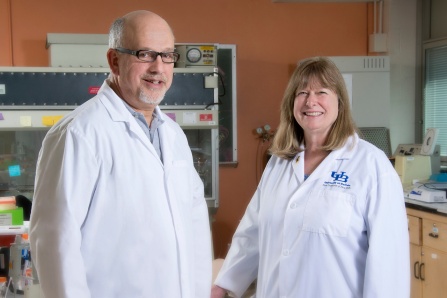Education and Training

Stephen Koury, PhD, is our department’s director of graduate studies, and Kate Rittenhouse-Olson, PhD, is director of our biotechnology undergraduate program.
The department offers courses of study leading to the Bachelor of Science degree in biotechnology or medical technology, or the Master of Science degree in biotechnology.




